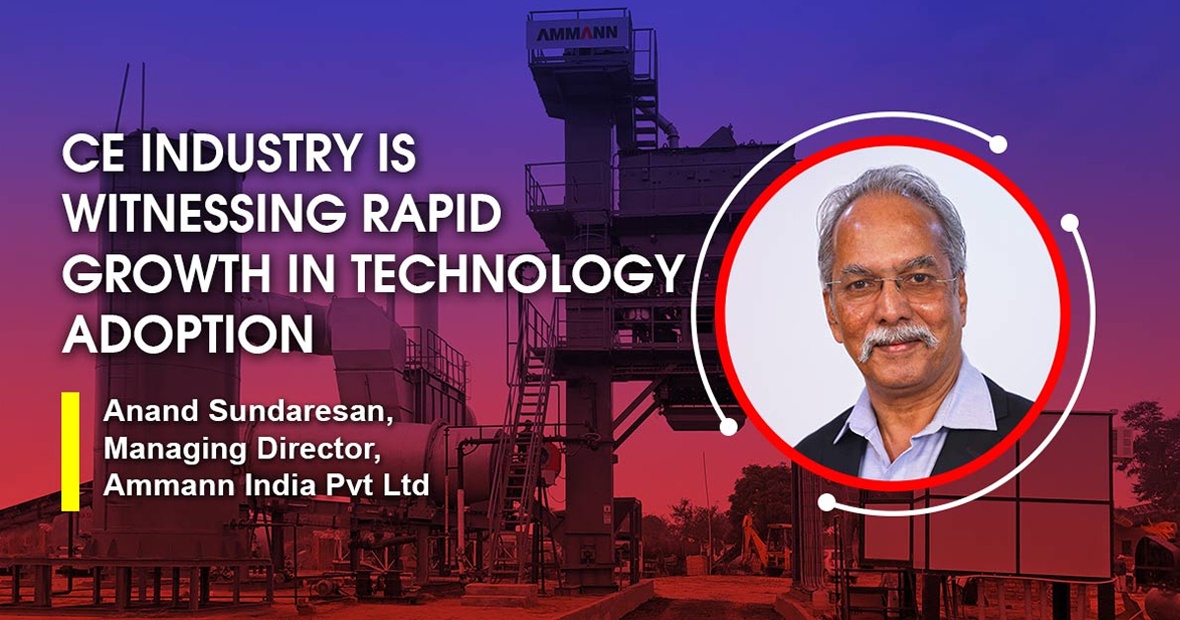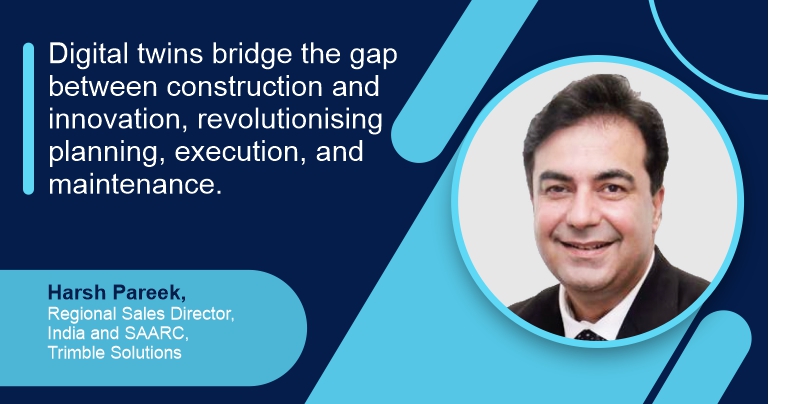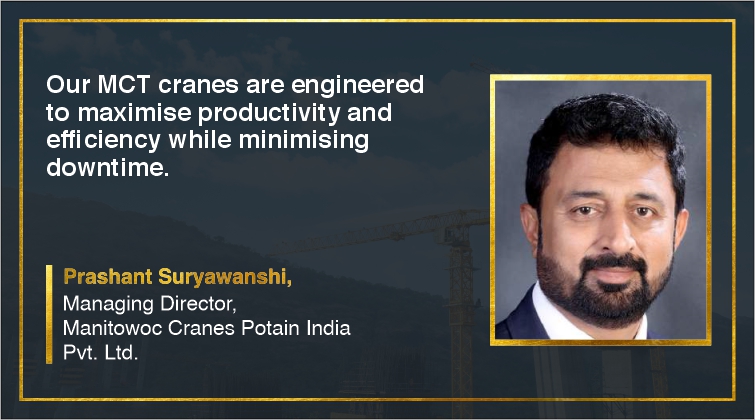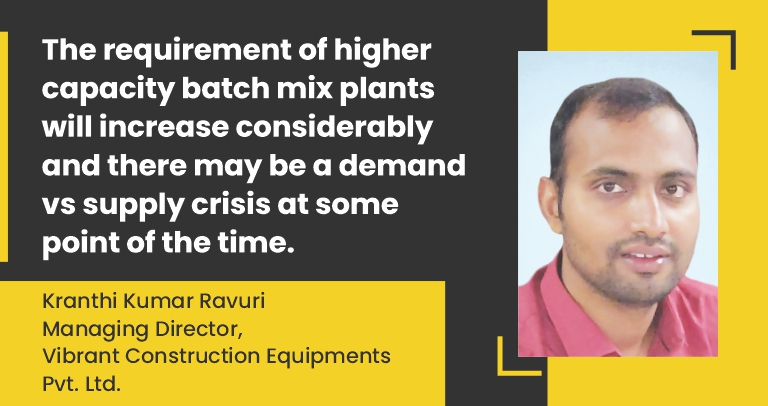CE industry is witnessing rapid growth in technology adoption
By Edit Team | July 9, 2021 12:06 pm SHARE

How do you see the present performance of the roads, highways and bridges construction in India? What are the new technology trends witnessed currently?
Roads have always been vital infrastructure for a country as they enable efficient transportation of goods and people. With higher thrust on infrastructure development over the last couple of years, the road construction industry in India is undergoing a paradigm shift. Robust demand, higher investments and significant policy support are changing the face of the sector. India has the third-largest road network in the world. India’s rate of road building has accelerated since 2010s. From an average 12 km per day in 2014–15 it reached 30 km per day in 2018-19 and is targeted to build 40 kmof highways per day. The present government, recognising the importance of the sector, has significantly increased the award of projects to construct new roads and highways.
The Indian construction equipment industry is witnessing a rapid increase in technology adoption. It involves technology in individual equipment and also project management technologies. Ammann India is making its best efforts to bring the latest technologies of all the road making machines and asphalt plants, adapting the same in its state-ofthe- art facility, which focuses on ‘Make in India’ concept, concentrating fully on green and digital technology.
What is your take on the cost and material efficiency for road making process?
India has to construct millions of kilometres of roads, be it expressways, national highways, state roads, rural roads, boarder roads, port connectivity etc. Thus, constructing these roads in a cost-effective manner with innovative technology is of utmost importance. There are many ways by which the cost can be brought under control. For example, the road making process, the machines used for road building and the inputs that go into road making. We as an equipment manufacturer can contribute in all the three areas. To name a few, bringing in the latest stateof- the-art equipment of the highest efficiency, lowest fuel consumption, use of attachments and accessories for use of recycled material etc, which can bring down the cost of road making. Ammann India has to its credit, introduced some of these techniques both in its asphalt plants as well as the other road machinery technology which consumes less fuel and attachments to make use of recycled material. Another area where the cost of the machinery can come down is developing local components and aggregates, indigenisationin India rather than importing, which will substantially reduce the cost of the machinery. Now, the biggest cause of concern for us is increasingsteel cost. The steel price has gone up substantially from `42/kg in November to `72/kg in June 2021. With this kind of steep increase in steel price, the input cost of all the machineries have gone up substantially. The result is that all the equipment have become expensive and the construction cost will go up.
As projects are growing bigger with shrinking execution timelines, how is Ammann coping up with this scenario?
When the projects are growing bigger and execution times are lower obviously, you need more mechanisation, use of higher capacity machines and equipment that have higher productivity, trained and skilled manpower etc. Even though the MoRTH does not specify the capacity of the asphalt plant to be used on the NHAI projects, many reputed big contractors go for higher capacity plants of 180 and 260 tons. Obviously, they will have higher productivity and once they have necessary balancing equipment like pavers, rollers etc., they can substantially increase the rate of road building and thus finish the projects faster. We have already produced and supplied plants of 260 tons capacity in India and if required we can also bring even higher capacity of 400 to 600 tons/hour plants, as we have these designs already available in our Group’s product range which can be replicated in India.
What has been the major challenges for your company when it comes to road construction?
Our major challenges especially when it comes to supply of asphalt plant is insufficient time available with us for execution of our orders. It becomes even more tricky when the size of the plant is bigger and we have dependency on certain imported components. It is very difficult to produce such huge capacity plants and keep it in stock, since if not delivered on time, it occupies too much of space in our manufacturing facility. In addition to this, till the last moment, we do not know what type of fuel ultimately the customer is going to use, as we have to make the burner suitable for the fuel. At the time of commissioning, we also have the challenges to adjust the burner, as many a times the fuel is too much contaminated. All these make it sometimes difficult for us to erect and commission the plant at a reasonable time, leading to unnecessary wastage of manpower, cost and customer dissatisfaction.
What are your expansion plans as the government is targeting to complete 40 km roads per day?
We don’t think constructing 40 kilometers of road per day is a tall target. In the recent past one of our customer M/s. Rajpath Infracon Pvt. Ltd. – Maharashtra, created a record of laying 39 kilometers of road in a single day. This was achieved with one single Ammann Plant of 140 ton capacity. So we are quite ready to support all the initiatives of Government in targeting higher achievement of constructing roads per day.
Cookie Consent
We use cookies to personalize your experience. By continuing to visit this website you agree to our Terms & Conditions, Privacy Policy and Cookie Policy.





















